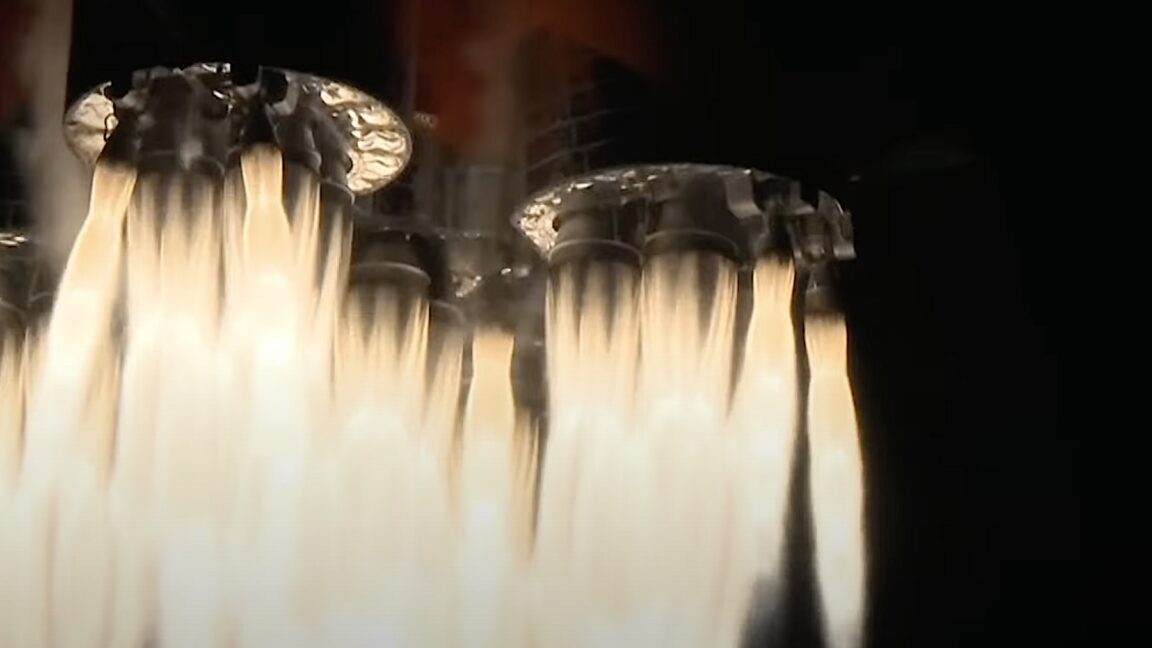Science
North Korea Tests New Solid-Fuel Rocket as ISS Reaches Milestone

North Korea has successfully conducted a significant test of a solid-fuel rocket engine, while the International Space Station (ISS) celebrates its 300th launch of a supply mission. These developments highlight ongoing advancements in global aerospace technology, with implications for both military and civilian applications.
North Korea Advances Rocket Technology
On September 5, North Korea announced it had completed the final ground test of a solid-fuel rocket engine, capable of producing 1,971 kilonewtons (443,000 pounds) of thrust. This test, observed by leader Kim Jong Un, marked the ninth iteration of this engine type, which is designed for long-range ballistic missiles. According to the state-run Korean Central News Agency, the new engine will be integrated into the Hwasong-20 missile.
Solid-fuel intercontinental ballistic missiles (ICBMs) offer several advantages over traditional liquid-fueled systems. They can be stored for extended periods, are easier to conceal, and allow for rapid launch capabilities. Analysts suggest that North Korea may conduct additional ICBM tests by the end of the year, likely timed to coincide with a major ruling party congress expected in early 2026.
Commercial Space Developments and Milestones
In other aerospace news, the US-based company Astrobotic has entered into a preliminary agreement with Norwegian spaceport operator Andøya Space. This agreement will support the launch of Astrobotic’s Xodiac lander from Andøya’s facilities, providing crucial testing capabilities for future lunar missions. The Xodiac rocket was originally developed by Masten Space Systems and was acquired by Astrobotic following Masten’s bankruptcy in 2022.
Meanwhile, Ursa Major has commenced construction of a new 400-acre testing facility in Weld County, Colorado. This site is dedicated to the development and qualification of large-scale solid rocket motors for various missile systems, including the US Navy’s Standard Missile fleet. Ursa Major’s CEO, Dan Jablonsky, emphasized the importance of this facility in enhancing the national missile defense capabilities.
On the launch front, SpaceX successfully deployed the first 21 satellites of a military megaconstellation intended to enhance the Pentagon’s missile defense strategies. This launch, which took place from Vandenberg Space Force Base in California, is part of a broader initiative to establish a comprehensive missile-tracking network. The Pentagon plans to follow up with an additional 133 satellites over the next nine months.
In a related development, Russian President Vladimir Putin has urged the country’s aerospace sector to strengthen its capabilities in developing booster rocket engines. During a recent visit to the Kuznetsov design bureau, he emphasized the need to revitalize production to compete in the global market, particularly as the country faces challenges with its heavier rocket engines.
International Collaborations and Future Launches
Astroscale, a firm dedicated to satellite servicing and space debris mitigation, has selected India’s Polar Satellite Launch Vehicle (PSLV) for its ISSA-J1 mission scheduled for 2027. This mission aims to inspect and analyze large pieces of orbital debris, marking an important step in addressing space sustainability.
In a noteworthy achievement, the Progress MS-32 cargo ship, launched from the Baikonur Cosmodrome in Kazakhstan, is en route to the ISS. This mission marks the 300th launch to the ISS since its inception in 1998, delivering vital supplies for ongoing research and operations.
As these developments unfold, they illustrate the dynamic and rapidly evolving landscape of global aerospace activities, encompassing both military advancements and collaborative efforts in space exploration.
-

 Science3 months ago
Science3 months agoToyoake City Proposes Daily Two-Hour Smartphone Use Limit
-

 Top Stories3 months ago
Top Stories3 months agoPedestrian Fatally Injured in Esquimalt Collision on August 14
-

 Health3 months ago
Health3 months agoB.C. Review Reveals Urgent Need for Rare-Disease Drug Reforms
-

 Technology3 months ago
Technology3 months agoDark Adventure Game “Bye Sweet Carole” Set for October Release
-

 World3 months ago
World3 months agoJimmy Lai’s Defense Challenges Charges Under National Security Law
-

 Lifestyle3 months ago
Lifestyle3 months agoVictoria’s Pop-Up Shop Shines Light on B.C.’s Wolf Cull
-

 Technology3 months ago
Technology3 months agoKonami Revives Iconic Metal Gear Solid Delta Ahead of Release
-

 Technology3 months ago
Technology3 months agoApple Expands Self-Service Repair Program to Canada
-

 Technology3 months ago
Technology3 months agoSnapmaker U1 Color 3D Printer Redefines Speed and Sustainability
-

 Technology3 months ago
Technology3 months agoAION Folding Knife: Redefining EDC Design with Premium Materials
-

 Business3 months ago
Business3 months agoGordon Murray Automotive Unveils S1 LM and Le Mans GTR at Monterey
-

 Technology3 months ago
Technology3 months agoSolve Today’s Wordle Challenge: Hints and Answer for August 19









